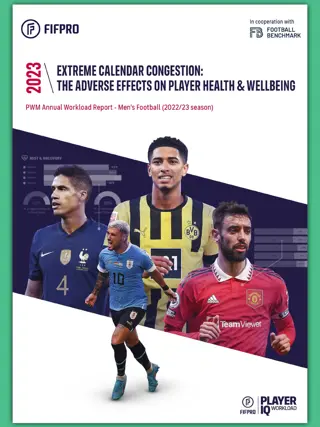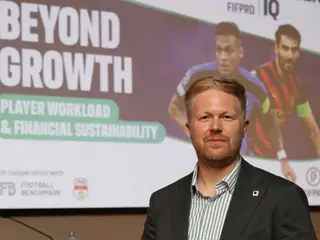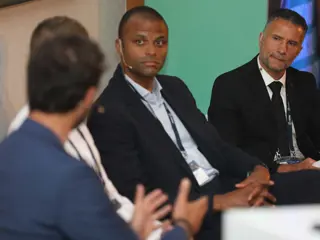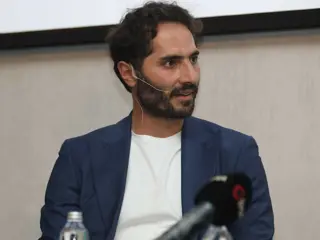News
Latest FIFPRO workload report launched in Istanbul ahead of UEFA Champions League final
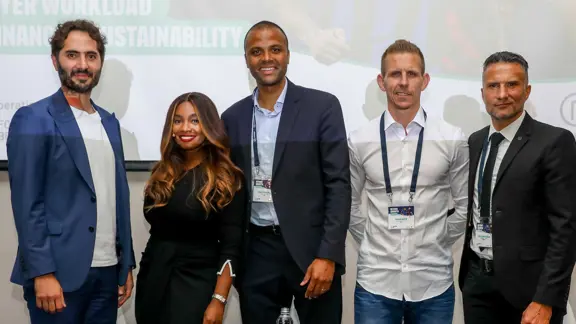
- FIFPRO and Football Benchmark released Extreme Calendar Congestion: The Adverse Effects On Player Health & Wellbeing
- End-of-season report was launched with an event ahead of UEFA Champions League final between Manchester City and Inter Milan at Ataturk Olympic Stadium
- The event in Istanbul – known as Beyond Growth – focused on topics of player workload and financial sustainability
FIFPRO and Football Benchmark have launched the end-of-season 2022/23 men’s player workload report, highlighting how elite men’s players were pushed to extreme lengths during a campaign where the World Cup was forced into the middle of most domestic club seasons.
The report, which is entitled Extreme Calendar Congestion: The Adverse Effects On Player Health & Wellbeing, was presented in Istanbul ahead of the UEFA Champions League final between Manchester City and Inter Milan to key stakeholders in the football industry, including high-performance coaches and player union representatives.
The event, presented by Samantha Johnson, focused on financial sustainability and player workload. It illustrated the dangerous workload demands of players due to extreme calendar congestion, demanding tournament workload, and insufficient preparation time and recovery periods.
"The 2022/23 player monitoring report reaffirms all the findings from previous years, but what is quite outstanding for this season, is the data we’ve identified where you can see the career paths of players in the current generation compared with footballers of the previous generations," said FIFPRO Director of Global Policy & Strategic Relations (Men's Football) Alexander Bielefeld.
"The world of work for professional players is impacted by many different aspects in the football industry – and this is something they can't control or govern.
"So, for us, the solutions really stem from a constructive dialogue with all stakeholders in professional football. We have an overlapping calendar internationally and the solutions can only be found together; they can't be found by a single stakeholder."
After a welcome from FIFPRO Europe President David Terrier and PFA Turkiye President Saffet Akyuz, a panel moderated by FIFPRO Chief Medical Officer Vincent Gouttebarge considered the effects extreme workload has on players’ mental recovery lifestyle, family and privacy.
It included opinions from PFA CEO Maheta Molango, Paris Saint-Germain Performance Director Nicolas Mayer, and Turkiye Football Federation Board Member and former national team player Hamit Altintop.
"The big issue we have is that people just see things in isolation – they just look at their specific calendar and they don't see the holistic view of what is happening," said Molango, who is also a FIFPRO board member. "We need to have a much more global and coordinated approach, and that’s what we’re trying to fight hard for."
Altintop, who as a player represented the likes of Schalke, Bayern Munich, Real Madrid and Galatasaray, said: "We need more educated people around players in this business. That's why we need to see more former players with high interest, with quality, and with the right programmes to develop football in the right direction."
The workload panel was followed by Football Benchmark’s look on financial sustainability.
CEO Andrea Sartori presented Football Benchmark’s club valuation report for 2023, before hosting a panel on club ownership, transactions and valuations which featured FIFPRO Director of Global Policy & Strategic Relations (Men's Football) Alexander Bielefeld and UEFA Managing Director Financial Sustainability & Research Andrea Traverso.
To read the full breakdown of FIFPRO’s annual end-of-season workload report, head HERE.

